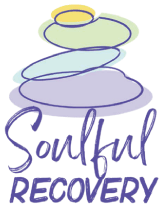Introduction
In today’s high-pressure academic environment, students face mounting pressure to excel. Deadlines, exams, and competitive admissions create an atmosphere where many feel compelled to find an edge. This pursuit of academic excellence has led to a concerning trend: the increasing use of “study drugs” or “smart drugs” among students. But does enhancing focus through pharmaceuticals represent studying smarter—or is it a dangerous attempt to study harder with significant health risks?
The Rise of Study Drugs on Campus
Study drugs typically refer to prescription stimulants used non-medically to improve concentration, alertness, and academic performance. Common examples include:
- Stimulants like Adderall and Ritalin (prescribed for ADHD)
- Modafinil (prescribed for narcolepsy)
- Various nootropics marketed as cognitive enhancers
According to the Substance Abuse and Mental Health Services Administration (SAMHSA), full-time college students are twice as likely to have used Adderall non-medically compared to their peers who aren’t in college or are only part-time students. The National Institute on Drug Abuse (NIDA) reports that prescription stimulant misuse is particularly prevalent among college students, with studies showing 4-8% of college students have used prescription stimulants non-medically.
Research published in the Journal of American College Health found that misuse peaks during periods of high academic stress, such as midterms and finals week, with rates sometimes doubling during these periods.
The Medical Reality: Effects and Risks
What the Research Shows
Dr. Nora Volkow, Director of the National Institute on Drug Abuse, points out that contrary to popular belief among students, research doesn’t consistently support the idea that these drugs enhance cognitive performance in people without ADHD. A comprehensive review published in Psychological Bulletin examined over 50 studies and found that while stimulants like Adderall might improve attention, they don’t reliably enhance learning or academic performance in individuals without ADHD.
What these medications definitely do cause, however, are physical and psychological effects that can be harmful. According to the FDA and research published in the New England Journal of Medicine, these risks include:
Physical Health Concerns
- Cardiovascular complications (increased heart rate and blood pressure)
- Sleep disruption leading to chronic fatigue
- Reduced appetite and nutritional deficiencies
- Risk of dependence and addiction
Mental Health Impacts
- Increased anxiety and panic attacks
- Mood disturbances and irritability
- Potential for triggering or worsening underlying mental health conditions
- Psychological dependence on medication for academic performance
Dr. Alan DeSantis from the University of Kentucky, who has extensively studied stimulant misuse among college students, notes that many students begin using these drugs with the misconception that prescription medications are safer than other substances, not recognizing their potential for harm when used without medical supervision.
The Legal and Ethical Dimensions
Beyond health concerns lie significant legal and ethical issues. The DEA classifies prescription stimulants like Adderall and Ritalin as Schedule II controlled substances—the same category as cocaine—reflecting their high potential for abuse. Possessing these drugs without a prescription is a federal crime.
From an ethical standpoint, many educational institutions consider the use of study drugs a form of academic dishonesty, comparable to other forms of cheating. A study in Academic Psychiatry found that 56% of students who used prescription stimulants non-medically believed it gave them an unfair advantage, raising questions about academic integrity and fairness.
Studying Smarter: Evidence-Based Alternatives
Research in cognitive science and educational psychology has identified several evidence-based strategies that enhance learning and academic performance without the risks associated with study drugs:
Spaced Repetition
A review in Psychological Science found that spaced repetition—studying material multiple times with increasing intervals between sessions—improves long-term retention by 200% compared to cramming.
Sleep Optimization
Research published in Current Biology demonstrated that adequate sleep before and after learning improves memory consolidation by up to 40%. In contrast, stimulant-induced sleep deprivation can significantly impair cognitive function.
Active Recall
Studies in Memory & Cognition show that actively retrieving information from memory, rather than passively reviewing it, strengthens neural pathways and improves long-term retention.
Physical Exercise
Research in the British Journal of Sports Medicine found that regular aerobic exercise improves executive function, attention, and processing speed—all critical components of effective learning.
Mindfulness Practice
A study from the University of California found that just two weeks of mindfulness training improved GRE reading-comprehension scores by 30% by reducing mind-wandering and improving focus.
Finding Balance: The Real Smart Approach
Dr. Barbara Oakley, engineering professor and creator of the world’s most popular online course “Learning How to Learn,” emphasizes that sustainable academic success comes not from chemical shortcuts but from understanding how our brains naturally learn and working with those processes rather than against them.
“The brain requires time to form strong neural connections,” Dr. Oakley explains. “Pharmaceuticals might make you feel more focused, but they can’t shortcut the biological processes that create true mastery and understanding.”
The pursuit of academic excellence need not come at the expense of health and wellbeing. The most successful students often find that balance—not pharmaceutical enhancement—is the true secret to sustained performance.
Before turning to study drugs, students would be wise to ask: Am I seeking a quick fix for deeper issues with my study habits, time management, or academic preparation? The answers might point to more sustainable solutions that enhance not just grades, but long-term cognitive development and wellbeing.

